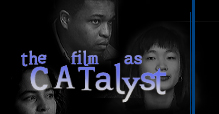contributed by Hugh Vasquez
What is an ally? An ally is someone who interrupts or intervenes to stop the mistreatment from continuing. Anyone can be an ally, but generally an ally is seen as someone from the dominant group who is intervening on behalf of the group being mistreated. For example, in terms of racism, white people are allies to people of color; on sexism, men are allies to women; with anti-semitism, gentiles are allies to Jews; on heterosexism, heterosexuals are allies to gays, lesbians, and bi-sexuals, etc.
What do allies do? An act of alliance can be a thought, feeling, or action. If you witnessed mistreatment and thought to yourself,”What happened was wrong,” you were an ally in thought. In addition, if you witnessed something and felt awful inside (sadness, anger, guilt, despair), that is an act of alliance. And, it is an act of alliance to take action and do something to stop the mistreatment.
Allies must first become aware and knowledgeable of the conditions that have some people receiving privilege while others receive mistreatment. Allies must learn how and where they have privilege and be able to articulate it, notice where privilege exists around them. Allies need to adopt the attitude that it is their role to fight oppression. For example, white people must decide that it is their place to work to end racism. Too often allies say “I just don’t know if it is my place to intervene.” It is everyone’s right to fight for justice for all others.
What do allies do? They listen, interrupt jokes, make mistakes, introduce new policies, insist on multicultural education, march at rallies, call legislators, boycott businesses that practice mistreatment, and work with other allies to become more effective at stopping the mistreatment. Allies do not give up the fight when they are on the receiving end of anger, disappointment, or hopelessness from the very folks they are fighting for. In other words, white people do not give up fighting to end racism when a person of color gets angry at them for being privileged.
Allies are open to hearing the stories from those who are mistreated, even if the stories involve frustration, pain, or sadness. Allies communicate that they can be approached they create space for people to say what has happened to them.
What can allies expect? Ultimately, allies can expect to feel proud that they worked to eliminate some form of mistreatment. Allies can look forward to rich relationships with people froed community. However, taking a stand can also result in you being targeted by others in the same way the very people you are in alliance with are targeted. You may get the message that it is none of your business to be concerned with this issue. You may suddenly feel very alone in the struggle.
It is critical that allies support each other. Many have given up the fight simply because they felt too tired and alone to go on. This is called “alliance fatigue.” Know that there are many allies around you and work to build connections with these folks. Many allies are “underground” not letting people around them know how they feel. At your homes, workplaces, schools, neighborhoods, religious settings, etc., start conversations that give you information on who else around you is an ally.
For further reading:
Kivel, Uprooting Racism
Vasquez & Femi, No Boundaries






